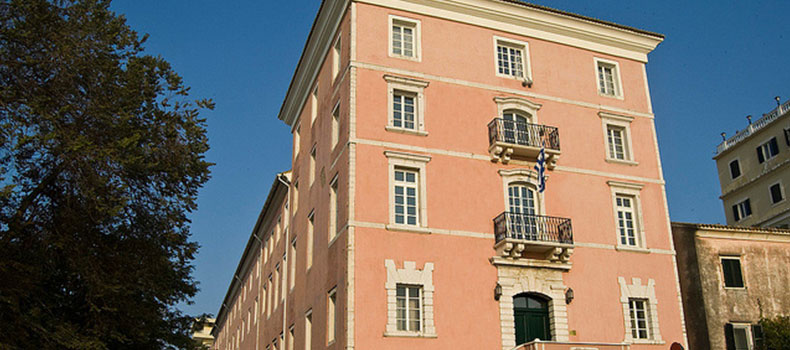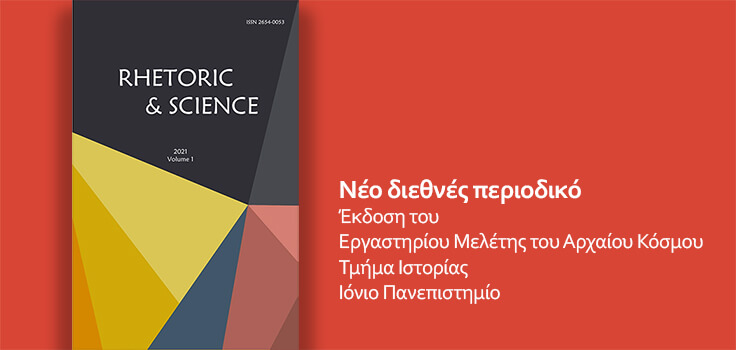We present here the new international journal Rhetoric & Science, which belongs to the field of Classical Philology, Rhetoric and Science.
Rhetoric & Science started in April 2019 as a follow-up activity of the International Conference ‘Mapping the Rhetoric of Science Writing in Antiquity and Beyond’ held at the History Department of the Ionian University in March 2019 and organized by the Centre for the Study of the Ancient World (CSAW).
The main impetus for its foundation came from Laurent Pernot’s inspiring comment, who in his 2000 work La Rhétorique dans l'Antiquité observed that Ancient Rhetoric was still a largely unexplored field of research, in the sense that some critical questions awaited answers.
One of these questions is the following: are we entitled to speak of a rhetoric of ancient scientific discourse? At the intellectual core of this journal lies the seminal 1997 paper ‘Towards a Rhetoric of Ancient Scientific Discourse’ by Philip van der Eijk, who dealt with some formal characteristics of Greek medical and philosophical texts, having established a very specific definitional framework right from the outset.
Rhetoric & Science draws on that framework, making use of the term ‘rhetoric’ with reference to formal techniques and procedures geared towards producing oral or written texts with the ultimate aim of achieving certain communicative purposes, and of the term ‘science’ to refer to the study and understanding not stricto sensu of the natural world, but, more generally, of the nature of things. Within this framework, under the heading ‘scientific’ can be subsumed not only texts on medicine, mathematics, geography, astronomy, optics, harmonics and whatever else one might regard as representative of ‘ancient science’, but also philosophical treatises, historiographical texts, or even non-scientific works containing sections designed to communicate scientific knowledge.
Yet, Rhetoric & Science does not confine itself to investigating the formal traits and the rhetorical, authorial or communicative structures and strategies of ancient scientific-technical texts. Rather, it also sheds light on the ancient orators’ approach to and use of scientific-technical knowledge, achievements, practices or terminology for their own purposes, as well as foregrounding the moments when they launch into a kind of scientific thinking or reflection, but the most important question that it seeks to answer is ‘to what extent (if at all) are ancient science writers required to be rhetorically cultivated, and ancient orators to be scientifically cultured?’
Rhetoric & Science, thus, aims to cover all aspects of the interaction between rhetoric and science in Greek and Roman Antiquity and Byzantium; yet it welcomes contributions also from scholars working on similar issues in modern science and rhetoric as well as on the reception of ancient rhetorical theory and science writing.





 Child and youth mental health in the WHO European Region
Child and youth mental health in the WHO European Region










